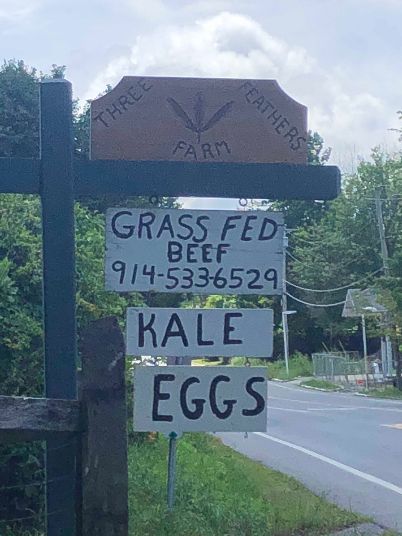Yesterday, my daughter and I visited a local farm. We found Three Feathers Farm on localharvest.org, a great resource to find your local farms and farmers’ markets throughout the U.S.
This post contains affiliate links. If you click through a link I may get a small commision at no expense to you. Read my disclosure policy here.
Why you should support your local farmer
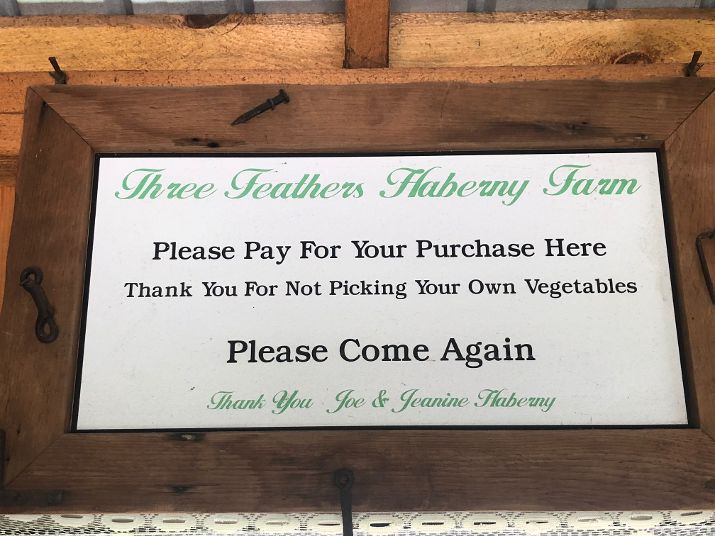
Supporting your local farmer means the money you spend will go to a small local business, probably a family. That money is statistically likely to stay local as opposed to money that goes to corporations.
You will get fresher food too, often picked the same day, and that means vitamins and minerals are at their peak. Small farms are far more likely to ripen produce on the plant instead of picking it early for shipping. You will find greater variety in produce too, like heirlooms, purple carrots and orange cauliflower! Produce in the grocery store is limited by what is more easily shipped and shelf stable.
If you want to know where your food came from and how it was raised, you only need to ask at the local farm. You will be supporting a tradition of small farms that are significantly better for the environment and perhaps you’ll be creating some new traditions of your own.
Meat and Factory Farms
For a long time, I’ve been having an internal argument over price and value for meat. Frugality seems to be hard-wired into me. I’m always looking for the best deal, value, price. And I can walk away from many deals that sound good, but don’t deliver on quality. I’d almost rather go without than get something cheap.
I used to be happy with london broil or boneless chicken breasts for $1.99/lb. But the last 2 times I bought chicken at the grocery store, the only real options were from Tyson. And I have no clue where the beef was from.
Have you seen the documentaries, news stories and more about how meat is wreaking havoc with our environment? It’s true.
Factory farms raise cattle, pigs or chickens under horrible conditions. Manure from cattle and pigs, which is the world’s first and best fertilizer, goes into huge pools (instead of on fields) which often leak, causing major water pollution locally and down stream or river.
Factory farm corporations feed the animals heavy, grain-based diets, which put more weight on faster. Grain diets are not natural for these animals, especially when it’s GMO corn or soybean that’s been heavily sprayed with pesticides.
For more information on the problems with factory farming, read these articles about animal welfare, pollution and the dangers of factory farms.
Support Your Local Farmer with Meat Purchases
The alternative to giving up meat altogether, is finding a better source. Pastured animals, fed an all grass diet are healthier. As the animals graze, they naturally spread manure throughout the fields. On a recent trip to the grocery store, I found grass fed beef from Australia. However, I don’t want to pay for, or be responsible for, shipping that product across the world with all the environmental problems associated with fossil fuels, pollution and packaging.

So I no longer want to buy factory farmed meat products despite the great price, but I still cringe at the price of locally, sustainably raised, grass fed meat!
It’s a personal decision for each of us, and sometimes it’s not even a decision at all if those grocery deals are all you can afford.
CSAs (community supported agriculture) and farmers’ markets are also important in your food choices for the environment.
Visit multiple farms
Before Christmas last year, my daughter and I travelled to Stuart Family Farm, an hour away. We got to see the cattle and pigs in their pens or pastures. And we had a personal tour guide in the shape of a giant white dog who reminded me of a polar bear! My family enjoyed a variety of steaks from Stuart Family Farm for Christmas dinner.
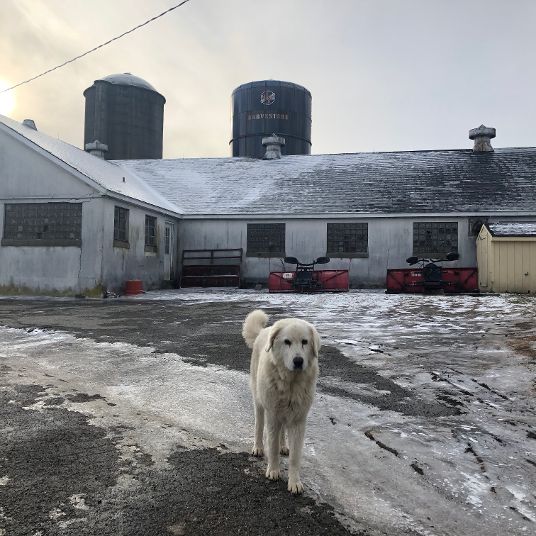
The greeter and tour guide at Stuart Family Farms 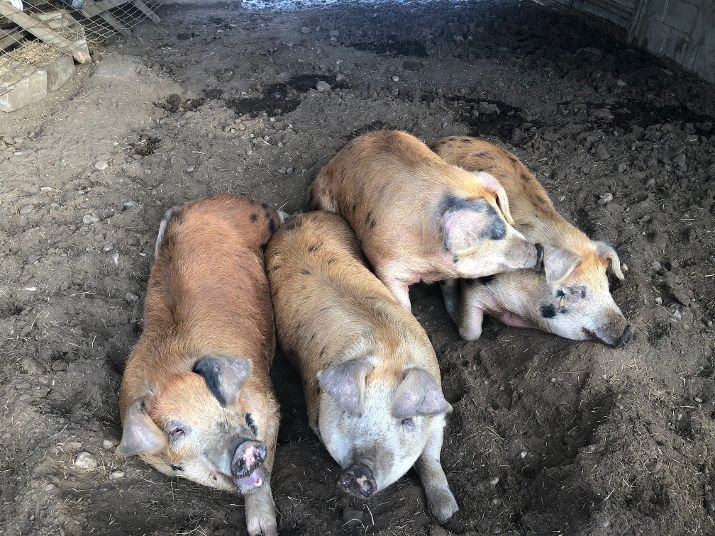
Pigs seemed relaxed and content. 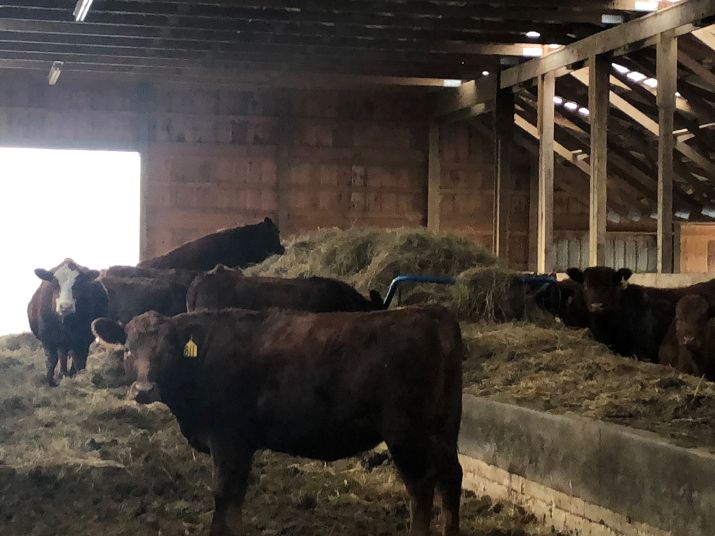
Uncrowded cattle enjoy hay when grass is covered with ice and snow.
You should expect pasture raised beef to be a bit tougher. Factory farms produce a much softer meat, whether because of the animal’s diet or their inability to get even minimal exercise, I don’t know.
Yesterday we were happy to drive just 11 miles to visit Three Feathers Farm in South Salem, NY. It was a beautiful day for a drive. Sadly, we weren’t able to tour the farm on this trip, but plan to visit again when the farmers are available.
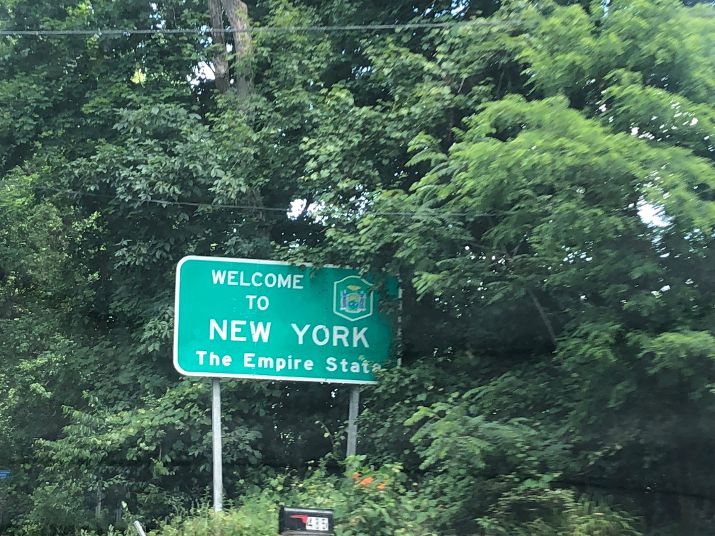
Crossing the Border–furthest I’ve travelled in months! 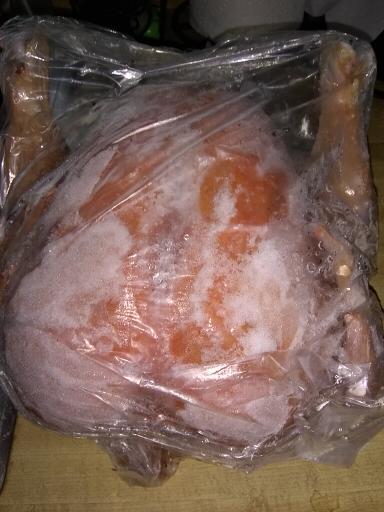
Look at the color of this chicken! 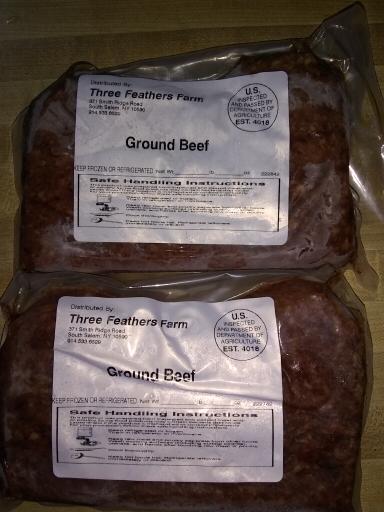
Pasture Raised Beef
I’ve compared the prices for different cuts of meat between the two farms and found they vary quite a bit. I like that I can get the better priced items from each, making the expense easier to take! Both of these farms sell their meat frozen and bagged or vacuum sealed.
The chicken we bought yesterday was $6.50 per pound and the ground beef was $7.50 per pound. Additionally, we picked up a big bunch of kale for a very reasonable $2.00.
Chances are, your local farm’s prices may be lower. Everything in my area is extremely expensive since we live along the “gold coast.”
Support the environment as you support your local farmer
If you are in a position to spend more to get a better product, you will also be taking a stand against
- pesticide-laden Monsanto GMO crops
- burning the Amazon rainforest
- poor treatment of farm animals
- polluting our water ways with massive quantities of manure
- using fossil fuels to ship products halfway around the globe.
- the spread of COVID-19 in big meat packing plants!
Have you visited a farm or farmer’s market in your area? Please share in the comments and promote the ones you like!
Subscribe to my newsletter to get the latest articles about living sustainably and saving money too.

